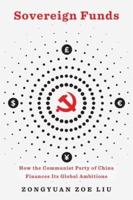Publisher's Synopsis
The Bretton Woods Conference of 1944 resulted in the formation of the International Monetary Fund and World Bank and helped lay the foundation for an unprecedented expansion of international commerce. Yet six decades later, at the beginning of the twenty-first century, the central characteristics of the Bretton Woods system remain disputed-and the subject of continuing public policy debate.
Relying on extensive access to IMF, World Bank, and other archives, the authors show that the history of international monetary relations since Bretton Woods is one of "orderly change"-that is, change within a sturdy but supple framework. Even during the years of fixed exchange rates, very different practices characterized international monetary relations immediately after World War II, during the 1950s, and during the 1960s. Later, when the fixed exchange-rate system collapsed, underlying commitments to trade liberalization in the context of continuing national economic policy autonomy survived and even flourished. However, the resulting international economic order is now in grave danger: the tension between states' autonomy and their mutual openness has become acute, as international monetary structures no longer appear capable of mediating between these objectives. David M. Andrews and the contributors to Orderly Change examine past transitions as a means of suggesting possible avenues for current and future policymaking.












